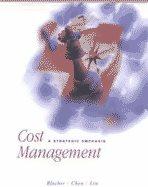Answered step by step
Verified Expert Solution
Question
1 Approved Answer
Interest on municipal bonds is usually exempt from federal income taxes. The interest rate on these bonds is therefore an after-tax rate of return (ROR).
Interest on municipal bonds is usually exempt from federal income taxes. The interest rate on these bonds is therefore an after-tax rate of return (ROR). Other types of bonds (e.g., corporate bonds) pay interest that is taxable for federal income tax purposes. Thus, the before-tax ROR on such bonds is typically higher than the ROR on municipal bonds. Develop a spreadsheet that contains the before-tax ROR (on taxable bonds) that are equivalent to after-tax RORs of 4%, 5%, and 6% for income tax rates of 15%, 28%, and 35%. (7.6)

Step by Step Solution
There are 3 Steps involved in it
Step: 1

Get Instant Access to Expert-Tailored Solutions
See step-by-step solutions with expert insights and AI powered tools for academic success
Step: 2

Step: 3

Ace Your Homework with AI
Get the answers you need in no time with our AI-driven, step-by-step assistance
Get Started


